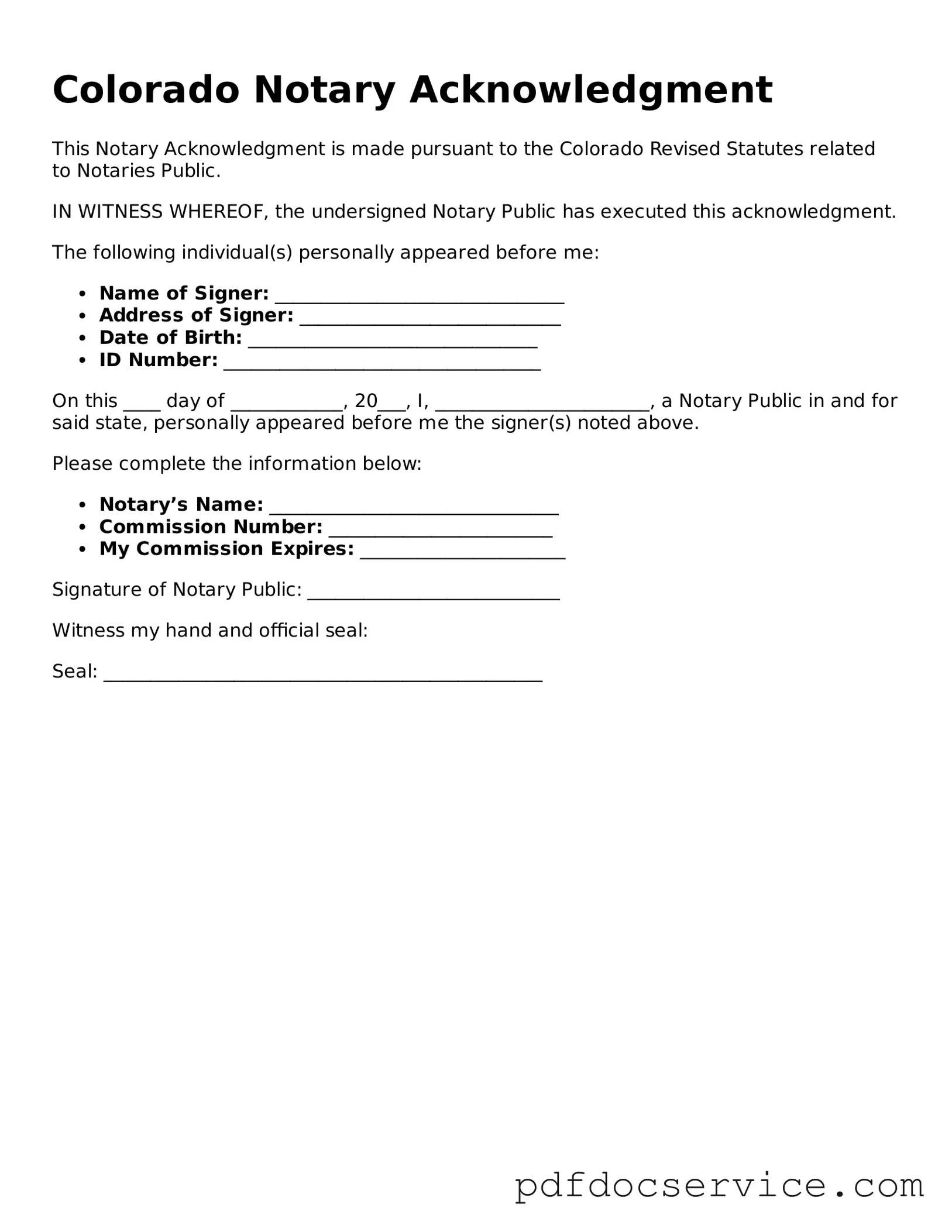The Colorado Notary Acknowledgement form is a legal document used to verify that a person has willingly signed a document in the presence of a notary public. This form serves as proof that the signer is who they claim to be and that they understood the contents of the document at the time of signing.
When do I need a Notary Acknowledgement?
A Notary Acknowledgement is typically required in situations where a document needs to be recorded or filed with a government agency. Common examples include:
-
Real estate transactions
-
Wills and trusts
-
Powers of attorney
-
Contracts
In these cases, the acknowledgment helps ensure the document's authenticity and can prevent disputes over the validity of the signature.
To complete a Notary Acknowledgement form, follow these steps:
-
Fill in the name of the person signing the document.
-
Provide the date of the signing.
-
Include the title of the document being signed.
-
Sign the form in the presence of the notary public.
The notary will then complete their section, which includes their signature, seal, and other required information.
A typical Colorado Notary Acknowledgement form includes the following information:
-
The name of the person signing the document
-
The date of the signing
-
A description of the document being acknowledged
-
The notary’s signature and seal
-
The notary's commission expiration date
This information is crucial for establishing the legitimacy of the signing process.
Is there a fee for notarization in Colorado?
Yes, notaries in Colorado are allowed to charge a fee for their services. The maximum fee for a standard notarization is set by state law. As of now, the maximum fee is $5 per signature. However, additional fees may apply for services such as travel or additional copies.
Notary Acknowledgement forms can be used for most documents that require a signature. However, some documents may have specific requirements. Always check if the document you are signing has particular stipulations regarding notarization. For example, certain legal documents may require additional forms or specific language.
If you make a mistake on the Notary Acknowledgement form, do not attempt to correct it yourself. Instead, it is best to complete a new form. The notary will assist you in ensuring that the new form is filled out correctly. This helps maintain the integrity of the notarization process.
How long is a Notary Acknowledgement valid?
A Notary Acknowledgement does not have a specific expiration date; however, its validity can depend on the context in which it is used. For example, if a document is not filed or used within a reasonable time frame, it may be questioned. Always check with the relevant agency or legal counsel if you have concerns about the validity of a Notary Acknowledgement over time.

